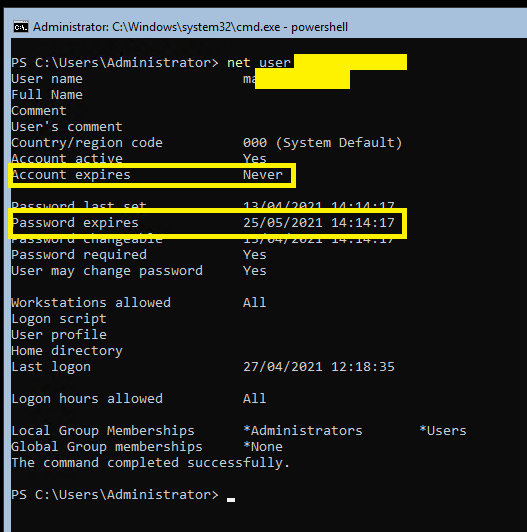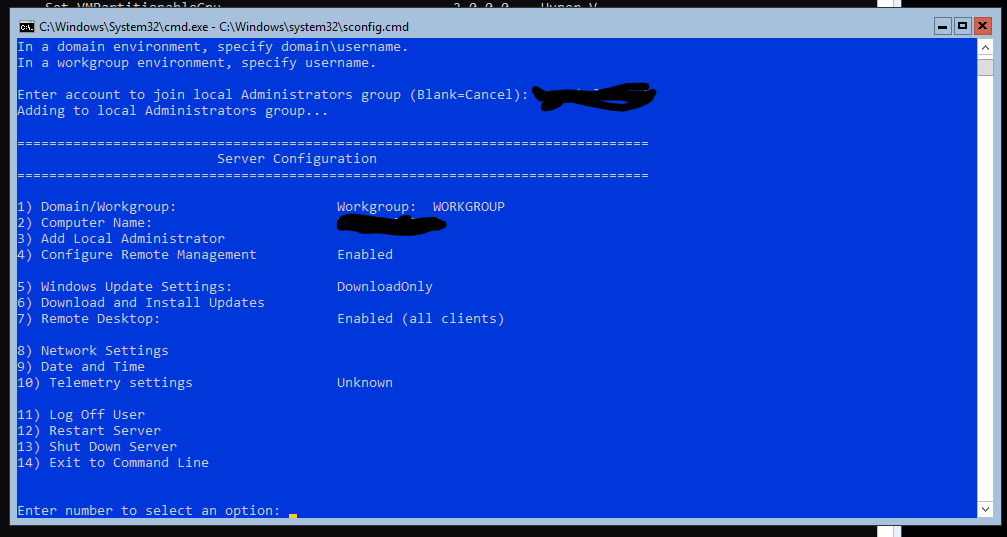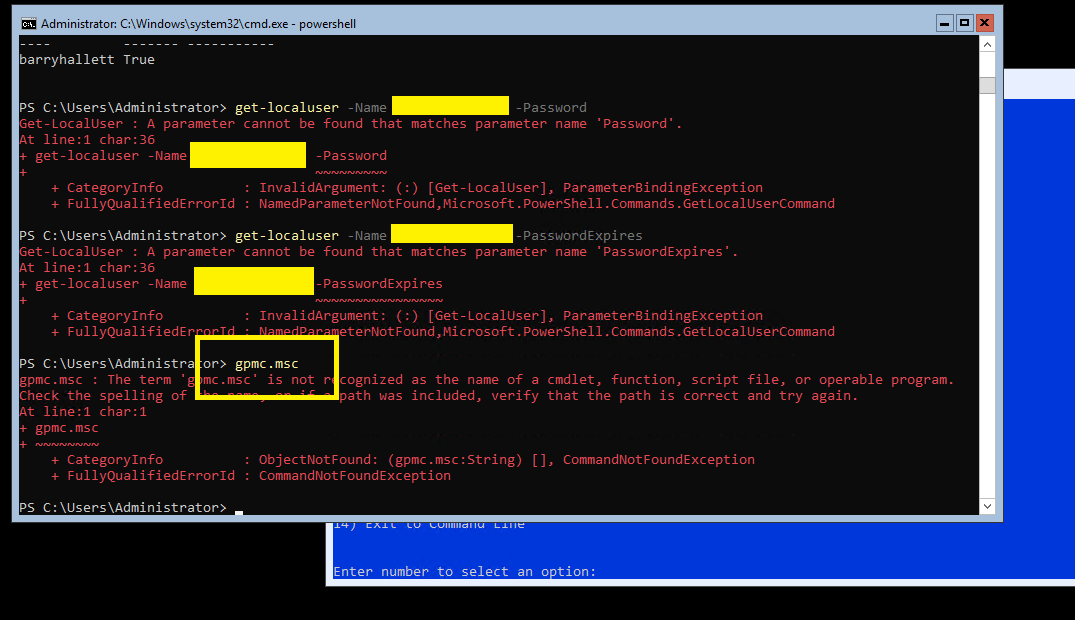
Hi YuhanDeng-MSFT,
Thanks for the information.
Through your last post I have managed to find what it is that i was looking for. The information I was looking for was as follows:

This browser is no longer supported.
Upgrade to Microsoft Edge to take advantage of the latest features, security updates, and technical support.
Hi All,
We have been using Hyper-V Server over our local network successfully for about a month now. However, when arriving this monday morning and trying to re-connect to manage the remote hyper-v VMs we receive the folling error:
An error occured while attempting to
connect to server " ************* "
Check that the Virtual Machine
Managment service is running and that
you are authorised to connect to the
server.
You do not have the required permission to complete
this task. Contact the administrator of the
authorization policy for the computer
' ************** '.

I have searched high and low for a resolution to this and even re-visited the sites that helped me to setup Hyper-V Server in the first instance + the following. All to no avail.
I know the VMs on this Hyper-V Server work because I was able to RDP into a guest VM which i left running over the weekend. So, VMs work but we are unable to remotly (or locally on Hyper-V server host) manage the VMs and there checkpoints.
Can someone advise which end needs fixing and the detail as to how to fix it (bearing in mind the Hyper-V host is not windows, its command line etc.).
Thanks in advance
Regards,
Barry
Hi YuhanDeng-MSFT,
Thanks for the information.
Through your last post I have managed to find what it is that i was looking for. The information I was looking for was as follows:

Hi All,
Information i have discovered off of my own back so far.
I have discovered that if i create a new Administrator on the Hyper-V host (as shown in screen shotbelow) that i can resume managing my VMs remotely from a Windows 10 PC. This has created more questions however:
1) Why does my existing user now not work and
2) How can i remove users from Hyper-V Server core?

Hi,
Based on your description, this issue seems related to authorization.
May I know the account type you used to connect the Hyper-V manager? Is it a common user in the Hyper-V manager group and the administrator group? If so, please try using the administrator account to connect it. If it works, but common user account can not connect , please check if the user is added into the Hyper V manager group and administrator Group. If not, please check the following article to add the account to the group:
https://techcommunity.microsoft.com/t5/itops-talk-blog/how-to-manage-local-users-and-groups-using-powershell/ba-p/733544
And to delete user by powershell, please refer to this:
https://learn.microsoft.com/en-us/powershell/module/microsoft.powershell.localaccounts/remove-localuser?view=powershell-5.1
Thanks for your time,
Best regards,
Danny
-----------------------------
If the Answer is helpful, please click "Accept Answer" and upvote it.
Note: Please follow the steps in our documentation to enable e-mail notifications if you want to receive the related email notification for this thread.
Hi Barry,
By default, to set common requirements for user passwords in the AD domain the Group Policy (GPO) settings are used. The password policy of the domain user accounts is configured in the Default Domain Policy.
You can set the policy as follows:
Type gpmc.msc in a cmdlet to open group policy management editor:

Find password policy, double click it and set maximum password age:

For your reference:
https://learn.microsoft.com/en-us/windows/security/threat-protection/security-policy-settings/maximum-password-age
Hope this would help.
Thanks and best regards,
Danny
-----------------------------
If the Answer is helpful, please click "Accept Answer" and upvote it.
Note: Please follow the steps in our documentation to enable e-mail notifications if you want to receive the related email notification for this thread.
Hi YuhanDeng-MSFT,
Thanks for your response and i understand your response assuming my Hyper-V host is actually a Windows Server OS where i can esily access gpmc.msc. However, it is not the Windows Server as indicated in my post above with the blue screen. On that basis i need to know how to do what you have shown be above but using the version of Hyper-V i am using. Below is an attempt to access gpmc.msc under Hyper-V core:
